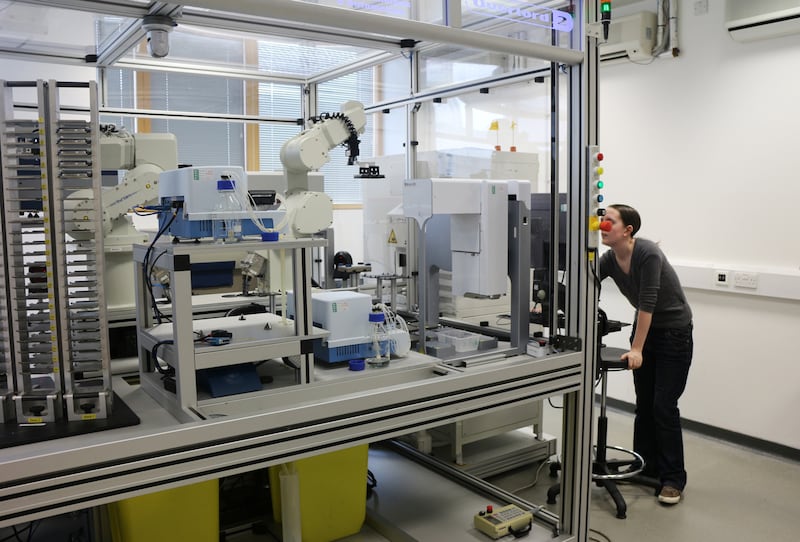A “robot scientist” has helped researchers identify a chemical compound found in toothpaste that could help in the fight against malaria.
The research team, with help from artificially-intelligent robot Eve, has found triclosan – an antibacterial agent which stops plaque from building up on the teeth – could be used as an anti-malarial drug.
Eve was developed by scientists at the Universities of Manchester, Aberystwyth, and Cambridge to speed up the drug discovery process. It is capable of screening over 10,000 compounds per day.
The team believes triclosan could be employed as a drug against strains of malaria parasite that have grown resistant to a currently-used drug called pyrimethamine.
According to the World Health Organisation, nearly half of the world’s population is at risk of malaria. In 2015, there were roughly 212 million malaria cases and an estimated 429 000 malaria deaths.
Professor Steve Oliver, from the University of Cambridge, said: “Drug-resistant malaria is becoming an increasingly significant threat in Africa and south-east Asia, and our medicine chest of effective treatments is slowly depleting.
“The search for new medicines is becoming increasingly urgent.”
Malaria is caused by parasites that are transmitted to people through the bites of infected mosquitoes.
These parasites first work their way into the liver where they mature and reproduce (liver stage), and then leave to hijack red blood cells where they continue to multiply and spread around the body (blood stage).
The researchers found triclosan to affect growth of the malaria parasite by inhibiting an enzyme called dihydrofolate reductase (DHFR) at the blood stage.
DHFR is already being targeted by pyrimethamine, a well-established anti-malarial drug, but resistance to the drug among malaria parasites is common, the researchers said.
The team showed triclosan was able to act on this enzyme even in pyrimethamine-resistant parasites.
According to the researchers, triclosan also inhibits the action of another enzyme of the malaria parasite, known as enoyl reductase (ENR), at the liver stage.

The researchers wrote in their paper: “This makes triclosan an exciting candidate for further development as a dual specificity antimalarial, which could target both liver and blood stages of the parasite.”
Lead author Dr Elizabeth Bilsland, formerly of Cambridge University who now works at the University of Campinas in Brazil, said: “The discovery by our robot ‘colleague’ Eve that triclosan is effective against malaria targets offers hope that we may be able to use it to develop a new drug.
“We know it is a safe compound, and its ability to target two points in the malaria parasite’s lifecycle means the parasite will find it difficult to evolve resistance.”
Eve is programmed to automatically develop and test hypotheses by running experiments and interpreting the results.
Professor Ross King, from the University of Manchester who led the development of Eve, said: “Artificial intelligence and machine learning enables us to create automated scientists that do not just take a ‘brute force’ approach, but rather take an intelligent approach to science.
“This could greatly speed up the drug discovery progress and potentially reap huge rewards.”
The research is published in the journal Scientific Reports.








